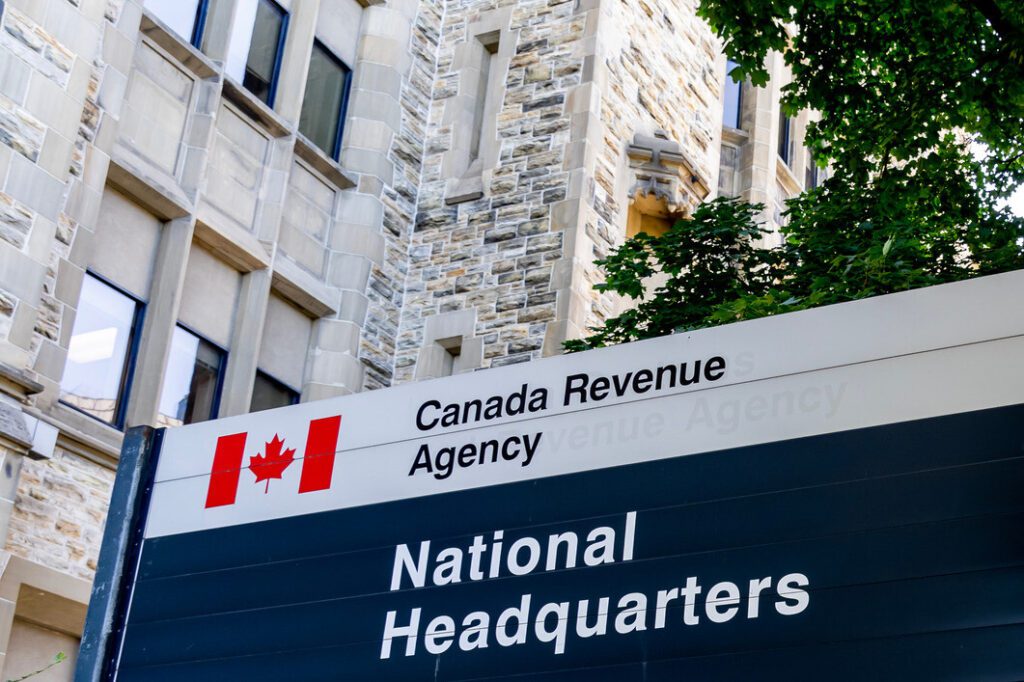Debt can be sneaky – it often builds up gradually until it suddenly feels overwhelming. If you’re struggling with monthly payments, feeling stressed about money, or relying on credit to get by, these could be warning signs that your debt is becoming unmanageable. Recognizing these red flags early can help you take action before financial trouble escalates. In this article, we help you to recognize the top warning signs of debt.
1. You’re only making minimum payments
Making just the minimum payments on credit cards or loans might feel like you’re managing your debt, but it’s actually a red flag. Interest builds up, making it harder to get out of debt in the long run. A $5,000 credit card balance at 20% interest could take over 20 years to pay off if you only make minimum payments, and you’d end up paying over $10,000 in interest.
Solution: a Licensed Insolvency Trustee (LIT) can help reduce or eliminate your debt through solutions like a consumer proposal, which can lower your payments by up to 80% and stop interest charges immediately.
2. Your credit cards are maxed out
Credit limits exist for a reason – if you’re constantly hitting yours, it’s a sign that your spending exceeds your income. High credit utilization (using more than 30% of your available credit) also harms your credit score. In fact, according to FICO, using over 30% of your available credit can lower your credit score by up to 100 points.
Solution: if you’re struggling to reduce your balance, a debt consolidation plan may help simplify your payments.
3. You rely on credit for everyday expenses
Are you using credit cards or loans to pay for rent, groceries, or utility bills? If so, you’re not alone. The Financial Consumer Agency of Canada reports that almost 30% of Canadians rely on credit cards to cover everyday expenses like groceries and utilities. This is a clear sign of financial strain. Borrowing to cover basic needs often leads to a dangerous debt trap.
Solution: if your income isn’t covering your expenses, it’s time to assess your financial situation and explore debt relief options.
4. You’re falling behind on bills and loan payments
Missed or late payments can lead to late fees, higher interest rates, and even damage to your credit score. If you’re skipping payments or prioritizing one bill over another, it may be a sign that your debt is unmanageable. With more than 1 in 10 Canadians missing at least one credit card payment in the last year, it’s a growing problem that is best tackled as early as possible.
Solution: a debt management plan or consumer proposal could help lower your payments and protect your credit from further damage.
5. You’re avoiding your finances
Do you ignore bank statements or feel anxious when checking your account balance? Avoiding your finances won’t make the problem go away. In fact, ignoring debt can lead to bigger financial issues like collections, wage garnishments , or even legal action. The link between mental health and debt is no secret – our recent study on Debt Load and the Impact to Psychological Wellbeing reveals that 50% of respondents reported difficulty sleeping. The sooner you speak to a Licensed Insolvency Trustee, the sooner you can reduce your debts and get back on track.
Solution: facing your debt head-on is the best step forward. Licensed Insolvency Trustees provide judgment-free advice to help you regain financial stability.
6. You’re receiving collection calls or legal notices
If creditors are calling, emailing, or sending collection notices, it means your missed payments are becoming a bigger issue. Collection agencies can be persistent and even take legal action if debts remain unpaid.
Solution: a Licensed Insolvency Trustee can negotiate with creditors on your behalf and help you stop collection calls via a stay of proceedings when a consumer proposal or bankruptcy is filed.
7. Your debt is affecting your mental health
Financial stress can lead to anxiety, depression, and even physical health issues. If you’re losing sleep over money problems or feeling overwhelmed, it’s time to seek support. In fact, people in problem debt are 3x more likely to have thought about suicide in the past year. This staggering statistic only highlights the urgent need for support and awareness around mental health and financial struggles.
Solution: reducing financial stress starts with a plan. A Licensed Insolvency Trustee can help you take control of your debt and improve your financial well-being.
Warning signs of debt: FAQs
Here are some of the most common questions we receive on the warning signs of debt:
What are the danger signs of debt?
The danger signs of debt include only making minimum payments on credit cards or loans, relying on credit for everyday expenses, maxing out credit cards, falling behind on bills, and avoiding your finances. Additionally, missing payments, receiving collection calls, or feeling overwhelmed and stressed about money are all clear indicators that debt may be becoming unmanageable. Addressing these warning signs early can help prevent further financial trouble.
What is a final warning letter for debt?
A final warning letter for debt is a formal notice sent by a creditor or collection agency to a debtor indicating that their outstanding debt must be paid immediately or face serious consequences, such as legal action, wage garnishment, or asset seizure. This letter typically comes after previous reminders and warnings, signalling the final opportunity to resolve the debt before further steps are taken. It is important to take immediate action when receiving a final warning letter to avoid escalating financial problems.
How much debt is serious?
The seriousness of debt depends on various factors, including the type of debt, your income, and your ability to manage payments. However, any debt that affects your ability to meet daily expenses, causes stress, or leads to missed payments can be considered serious. A general rule of thumb is if your total debt exceeds 40% of your monthly income, it could indicate that you’re in a risky financial situation. If you’re unable to keep up with payments or your debt continues to grow, it’s essential to seek help from an experienced Licensed Insolvency Trustee before it spirals further.
How to tell if someone is in financial trouble?
Here are some common signs that someone is in financial trouble:
- Constant stress about money: if they frequently talk about or seem anxious over money, it could indicate financial stress.
- Missing bill payments: Cconsistently skipping or delaying payments on bills or loans may suggest they are struggling financially.
- Using credit for essentials: relying on credit cards or loans to pay for daily expenses, such as groceries or utilities, is a red flag.
- Avoiding financial conversations: if they avoid discussing money or checking their account balances, it could be a sign of financial distress.
- Debt collectors contacting them: receiving calls, emails, or letters from debt collectors indicates overdue payments and escalating financial issues.
- Living paycheque to paycheque: if they often express concern about making it to the next paycheque, they may be struggling with managing their finances.
Recognizing these signs early can help offer support and encourage them to seek help or explore debt relief options.
How Spergel can help
Ignoring debt problems can make them worse, but you don’t have to navigate them alone. At Spergel, we’ve helped over 100,000 Canadians regain control of their finances through consumer proposals, debt consolidation, and bankruptcy solutions. The sooner you address the warning signs of debt, the easier it is to regain financial stability. Because debt shouldn’t decide your future. Book a free consultation with Spergel today and start your journey to a debt-free future.



















